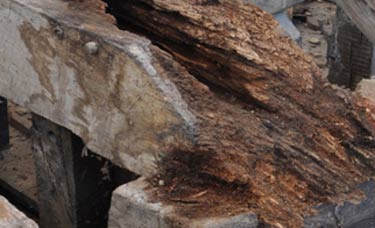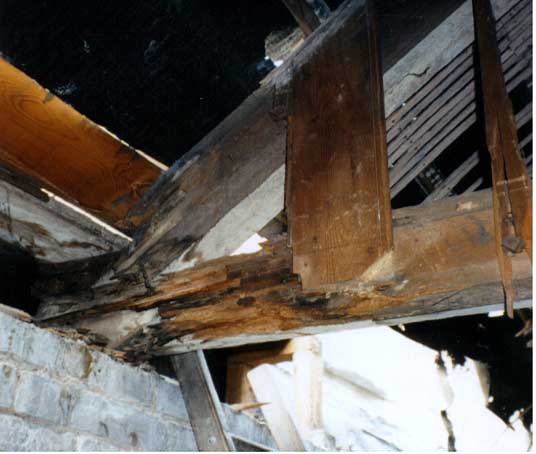When you come across rotted wood in your old house projects instead of replacing the damaged wood you also can repair it with specialty epoxy penetrants also called consolidants and fillers to make repairs.
Treating rotted roof timbers.
How to repair roof trusses.
Treating carrier beams and wall plates boron is an excellent treatment for damp timber.
Dip a small 2 in 5 1 cm paintbrush into the container of liquid borate.
Fixing decayed rotted wood using an epoxy penetrant and filler.
The treatment of wet rot involves applying a fungicide during the drying out period.
However this approach is expensive and unnecessary.
Apply a borate wood preservative to permanently prevent dry rot.
This is particularly the case with rot that continues to get damp with rainwater.
It can then be applied using a brush or a low pressure sprayer.
For this example we will be demonstrating a brief step by step guide on how to repair a wooden roof joist using timber materials.
The wood should come away quite easily without much force.
If you re concerned that timber may get infected with dry rot in the future your best bet is to coat the exposed ends of the wood with a liquid borate preservative.
It can be applied as a paste and inserted into 10mm holes drilled in the timber.
Step 1 remove any visible rotten wood with a chisel.
However in most cases you can stop wet rot by treating the timber with a fungicide.
Treating dry rot can involve removal of the affected timber including all timber for a metre beyond the visible signs of the fungus and extensive chemical fungicide treatments for all adjacent timber and the brickwork of any contaminated walls and plaster.
The properties of boron will kill all wood boring insects as well as killing and preventing further growth of all fungicidal spores which are the causes of wet and dry rot.
While only capping the beam ends might improve their appearance it usually allows existing dry rot to get worse.
Older roof timbers were connected with mortise and tenon joints plus wooden pegs.
You cannot magically replace damaged timber but if the rot has not structurally damaged the timber item then digging out the soft material treating it filling up the craters left behind and painting it so that water cannot raise the moisture content again will do a lot to slow it down or stop it.
Resin repair with tie bars and injected resin can solve this problem.
Not being able to correct the moisture problem as mentioned earlier before performing any diy treatment the primary step is to remove the source of water causing the damp.
Usually the fungicide comes as a concentrate and will need to be diluted.










